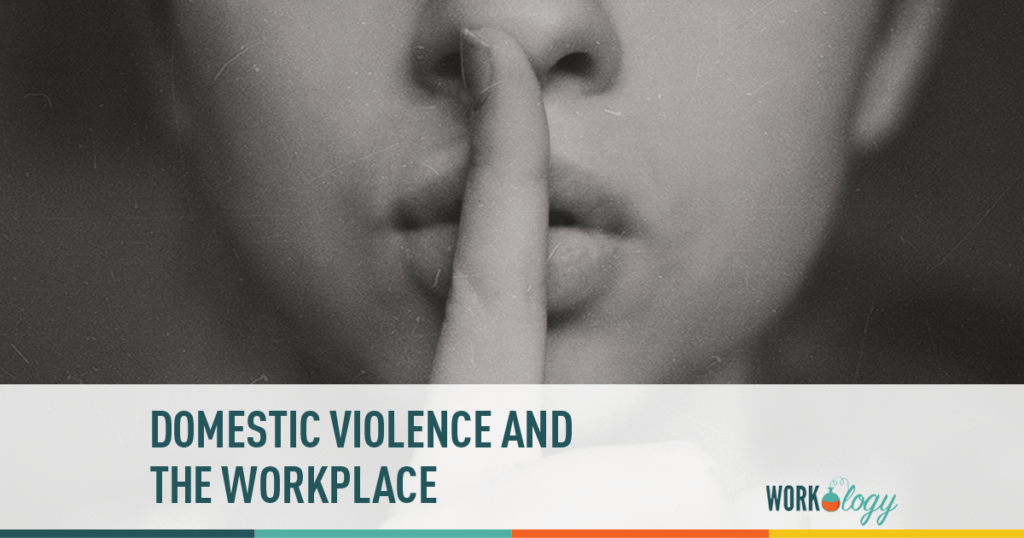In my last post, I talked about how important good listening skills are for HR professionals. As I mentioned, sometimes when we listen, employees tell us about an issue that requires more help than we can give. In my HR career, I have had employees come to me about domestic violence issues in their lives. Prior to my HR career, I worked at an emergency domestic violence shelter, so I am no stranger to helping people who are leaving abusive relationships. But dealing with these situations in an HR role is different. So, in today’s post we will look at how employers can help an employee dealing with a domestic violence situation.
SAFETY AT WORK
We spend a lot of our waking hours at work. For someone in an abusive relationship, work can be sometimes be a sort of safe haven. It is a way to be away from an abusive partner. Often, we may not know that an employee is in an abusive relationship until they speak up about it. Domestic violence can be physical or emotional, and it can affect an employee’s attendance and work performance. The injuries are not always visible, so we often do not know if a coworker is dealing with an abusive relationship until they tell us.
Blogging4Jobs Chief Blogger Jessica Miller-Merrell has written about her own experience leaving an abusive relationship and what that meant for her job. She also has discussed how hard it can be to make the decision to leave an abuser.
For some people, there is financial security in an abusive relationship. They may not make enough money on their own to support themselves. Or, as Miller-Merrell points out, it can be a challenge to reconcile one’s identity as smart, successful and strong at work with someone who is the victim of abuse at home.
When an employee comes to HR about an abusive relationship, it is important that we provide a safe space for them to talk. It is also important to know what kind of help your company can provide. You cannot provide shelter, legal help and counseling, but you can offer understanding, leave time and phone numbers for local services.
Be aware that an employee may get a restraining order against an abusive partner. If this is the case, work with the employee to educate their manager about calling the police if the partner shows up at work.
LEAVE OF ABSENCE
Knowing that their job will be safe can be a huge help to someone needing to take time off to leave an abusive partner. When I worked at a domestic violence shelter, I was surprised by the number of women who talked about losing their jobs because they requested time off to leave an abusive relationship. Others did not even think of the possibility of leaving until they found out their leave rights and learned that they could take time off. While there is not yet a federal law granting leave rights to those leaving abusive relationships, many states have enacted such laws.
In California, the state where I work, employers must provide unpaid time off for employees appearing in court to obtain a restraining order or other legal protection due to domestic violence. In addition, employers with 25 or more employees must provide unpaid leave to victims of domestic violence who need to obtain shelter, medical services, legal assistance, counseling or other services.
Research the laws in your state, and be sure to include the necessary domestic violence leave rights in your employee handbook. If your state does not require domestic violence leave, it is a good idea to talk with management at your company to decide if you want to provide some kind of leave for employees in this situation.
OTHER RESOURCES
As I mentioned in my last post, having a list of community services can be a useful thing to have on hand for employees in need. The National Domestic Violence Hotline (1-800-799-7233) is a good place to start, and many cities and counties have their own hotlines as well.
When I worked at a domestic violence shelter, we did a lot of outreach in the community. This included going to events, speaking to classes and speaking with local groups. During my HR career, I have called on people at local agencies and shelters to get information on resources available. Many organizations are happy to send someone out to talk to managers about responding to domestic violence in the workplace.
IN THE END…
According to the National Domestic Violence Hotline, 44% of full time employees have personally experienced the effects of domestic violence in the workplace. Additionally, 21% said they have been the victims of intimate partner violence. With this in mind, it is important to be ready to respond when an employee needs help. Sometimes providing things as simple as a leave of absence or a phone number to call for help can be what makes it possible for someone to leave an abusive situation.









